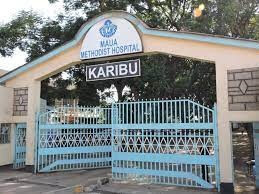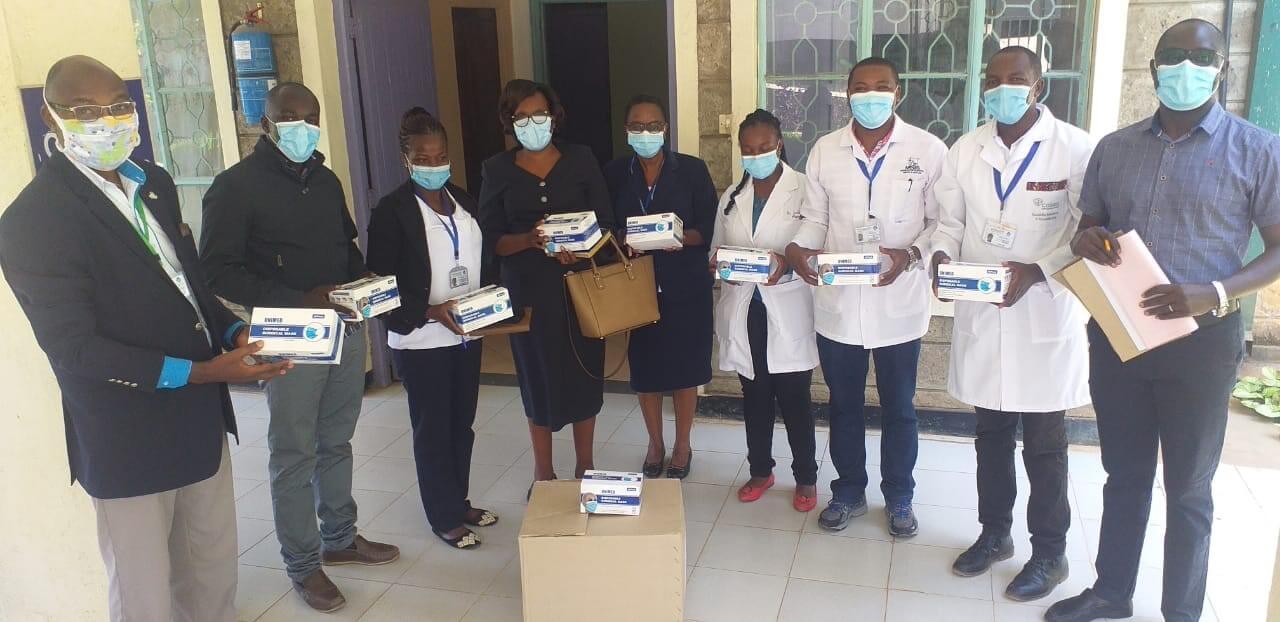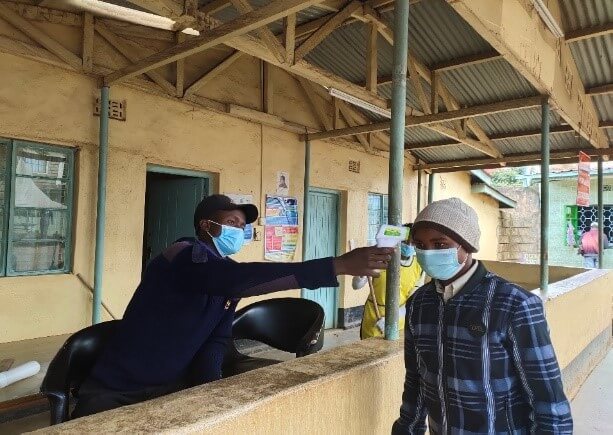COVID-19 pandemic response:Maua Methodist Hospital
Maua Methodist Hospital is a Christian-based healthcare facility that is located in Maua, Meru, Kenya. It was  established in 1928 and has developed into a modern 230-bed referral hospital serving a population of about 600,000 people. Maua Hospital has a Registered Community Health Nursing school that trains students from all over the Connexion and has proved to be one of the best training institutions in East Africa. COVID–19 pandemic affected the entire country and the level of services that were being offered, the healthcare sector was not an exception. Operations in our facility were impacted both on the patients’ and providers’ end.
established in 1928 and has developed into a modern 230-bed referral hospital serving a population of about 600,000 people. Maua Hospital has a Registered Community Health Nursing school that trains students from all over the Connexion and has proved to be one of the best training institutions in East Africa. COVID–19 pandemic affected the entire country and the level of services that were being offered, the healthcare sector was not an exception. Operations in our facility were impacted both on the patients’ and providers’ end.
Effects of COVID–19 in the hospital
COVID–19 outbreak was declared a pandemic by the WHO on 11th March 2020. Further, on 15th March 2020, in response to efforts to curb spread, the Kenyan government imposed a national lockdown restricting movement of people and goods both locally and internationally. The number of goods being imported into the country greatly reduced. This measure affected our facility, especially the procurement department, as most local pharmaceutical manufacturing and distribution companies were either operating below capacity or were totally locked down. Due to this, as well as increased global demand, the price levels of products, especially PPEs, increased massively (some by as much as 10–fold) and some of the essential products went out of stock completely. However, despite all the challenges the hospital has taken strict measures to prevent the risk of contracting Coronavirus within the facility. Some of these measures include; constructing an automated handwashing station and temperature screening at the entrance, wearing of masks by all who enter the hospital, and ensuring that the stipulated 1.5M distance is adhered to within the facility. We also ensured that the hospital staff have been provided with PPEs and disinfection stations put in place in all the buildings.
The number of patients visiting the facility greatly reduced especially at the beginning of the pandemic Due to the widespread fear among people that they had a high chance of contracting Coronavirus within the hospital. With time the stigma went down and the numbers have gradually returned to more normal. The biggest challenge that was faced by the facility was shortages of Personal protective equipment (PPEs), because the country as a whole was not generally prepared to deal with a pandemic of such level. There was also widespread fear amongst frontline healthcare workers of contracting the virus, and this combined with the stigmatization of medical staff took a toll on the emotional wellbeing of many of the staff. Furthermore, some of the units within the hospital such as ENT(hear, nose and throat) were shut down which meant for deployment elsewhere within the hospital for some staff. Additionally, the shortage of stocks made it challenging for the staff to operate to their full capacity. Due to financial constraints with fewer numbers of patients, increased costs of medical supplies and increased demands for PPE, the better-paid staff also had to endure pay cuts as a measure to try & ensure no staff had to lose their jobs.
Interventions initiated to address these challenges

Maua Methodist was at the frontline to ensure that day-to-day activities at the hospital were run as smoothly as possible despite the ongoing pandemic. Some of the measures that were taken by hospital to address the above challenges include; ensuring that the staff members had access to PPEs even during peak shortage times, providing spiritual and mental support to staff members. Automated hand sanitizing systems were put in place in the hospital and employees were encouraged to observe the mandated social distancing and to wear their masks well. Working shifts around the hospital were also arranged in a manner that allowed employees to circumnavigate the government-mandated curfew. In addition to that, the hospital offered to pay half of the bills for any staff that needed to take a COVID-19 test.
What we have learnt
The pandemic served as a great bench–mark to Maua Methodist Hospital and the country as a whole on how to handle future pandemics. The greatest lesson that was learnt was the importance of people in the healthcare system working together to tackle a problem. Had all the departments within the hospital, the community, and our amazing donors who stepped in to assist us in acquiring PPEs, not come together to formulate and adhere to guidelines that had been stipulated to minimize the spread of the virus, then the levels of positive COVID–19 cases in the area would not have been as low as they are. The procurement department should also be commended for always making sure that protective gears were available at all times. Also, most of the patients admitted into the hospital’s isolation ward were able to recover fully.
Opportunities to be picked
A number of opportunities can be picked from the experience of dealing with COVID–19. First and foremost is that health facilities should maintain protocols that were put in place to fight COVID–19, such as having disinfection and handwashing stations throughout the hospital. This ensures that infections that are spread through contact are kept at a low level which will keep patients safe within the hospital and lower the overall cost of treatment. Hospitals should always make sure that they have some level of resources in readiness to deal with any emerging pandemics in the future and COVID–19 will act as an excellent point of reference when drawing up such measures.
Conclusion
Despite the challenges brought by the COVID–19 pandemic, the Maua Methodist hospital community has been able to come together through prayers and teamwork and continues to provide high-quality compassionate healthcare demonstrating the gospel, which is the main mission of our hospital. We were also able to identify loopholes in our healthcare system to address in response to any future pandemics or emergency situations.
References
- World Health Organization (2020, April 27). WHO Timeline –COVID–19.
- “Kenya Coronavirus –Worldmeter” www.worldmeter.info. Retrieved 24 March 2021.